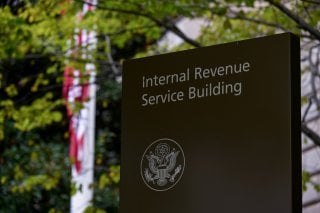Many Americans Still Without Refunds as Tax Day Approaches
The IRS has issued about 45 million tax refunds worth about $150 billion, but some taxpayers may still be waiting on their refunds.
The Internal Revenue Service (IRS) has been hard at work over the last two months. It has already disbursed more than 45 million tax refunds worth about $150 billion.
That means that the average refund payment is a rather impressive $3,352, about $400 higher compared to this time last year.
However, the backlogged IRS is still working its way through millions of prior years’ tax returns and correspondence, which is having an impact of many Americans’ refunds. The agency said that most refunds are sent out within three weeks, but that hasn’t always been the case.
So, is there really a quicker way to get a refund? According to Kelly Tyko at USA Today, the IRS suggests filing taxes electronically and receiving your refund via direct deposit.
“The IRS says refunds can be deposited directly into bank accounts, prepaid debit cards or mobile apps as long as a routing and account number is provided,” she wrote. “The IRS says many different factors can affect the timing of a refund after the IRS receives a return electronically. A manual review may be necessary when a return has errors, is incomplete or is affected by identity theft or fraud.”
Tracking Your Tax Refund
Taxpayers can also track their refund online. The “Where’s My Refund?” tool on IRS.gov/refunds and the IRS2Go app “are the best ways to check the status of a refund.”
Keep in mind that taxpayers usually can see an update twenty-four hours after the IRS has received an electronic filing or four weeks after sending a paper return. The tool generally updates once per day overnight.
USPS Informed Delivery can also be a handy way to track payments if expecting a paper check. All one has to do is head over to the USPS Informed Delivery page, select “Sign Up for Free,” and then follow the instructions.
Tax Refunds From 2018
The IRS has reported that nearly $1.5 billion remains in unclaimed tax refunds for about 1.5 million taxpayers who did not file a 2018 return. These people have until tax day on April 18 to collect the money.
“The IRS wants to help people who are due refunds but haven’t filed their 2018 tax returns yet,” IRS Commissioner Chuck Rettig said in a statement. “But people need to act quickly. By law, there’s only a three-year window to claim these refunds, which closes with this year’s April tax deadline.”
However, Susan Tompor at the Detroit Free Press noted that the refunds “may be held back if taxpayers have not filed tax returns for 2019 and 2020.”
She added that “refunds will be applied to any amounts still owed to the IRS or a state tax agency and … may be used to offset unpaid child support or past due federal debts.”
Ethen Kim Lieser is a Washington state-based Science and Tech Editor who has held posts at Google, The Korea Herald, Lincoln Journal Star, AsianWeek, and Arirang TV. Follow or contact him on LinkedIn.
Image: Reuters.

